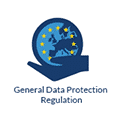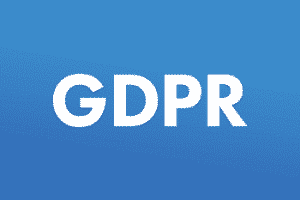iTech uses cookies so that we can provide you with the best user experience possible. Cookie information is stored in your browser and performs functions such as recognizing you when you return to our website and helping our team to understand which sections of the website you find most interesting and useful.
Artificial Intelligence and Predictive Analytics:
How Are They Related?
When many people think of artificial intelligence (AI), they imagine a robot with uncanny human-like attributes. This view has long been perpetuated by Hollywood in films such as iRobot. But really, this is an old and outdated view of AI, as artificial intelligence has evolved far beyond robotics and human analogs. Today’s brand of artificial intelligence is far more versatile, arising from technology such as big data, machine learning, and predictive analytics. So how are concepts such as artificial intelligence and predictive analytics related? And why is this relevant for companies seeking to develop a custom mobile app, enterprise software, or a piece of proprietary technology?
What is Artificial Intelligence?
Artificial intelligence is precisely what it sounds like—an analog of human intelligence. As such, artificial intelligence can be used to make an app more relevant and engaging or even to take the place of a human, such as in the case of a teaching application.
Intelligence involves a few different elements, such as the ability to make sense of and evaluate a situation, the ability to make autonomous yet logical decisions, and a tendency to act in a manner that is likely to bring you closer to achieving an objective.
Prior to the development of AI, programmers and app developers were tasked with identifying possible scenarios and the appropriate course of action in response to those scenarios. This technique is time-consuming and ineffective because bots have no idea what to do if they encounter conditions that differ from the predetermined scenarios.
With AI, contextual clues and patterns can be identified, a decision can be made and the software can continue working without skipping a beat.
In order to fully understand artificial intelligence and how this intelligent digital entity comes into existence, it’s vital that you understand four key terms:
Big Data
Big data refers to large volumes of data, which are used to provide insight into trends, patterns, probabilities, averages and norms.
Machine Learning
Machine learning is a form of programming that allows an application, software program or bot to learn without explicit input from a developer. In other words, with machine learning in place, an application or algorithm can take in big data, analyze that data, and then learn and improve without a developer encoding each and every possible response for each and every possible eventuality.
Natural Language Processing
NLP refers to software programs that are designed to understand and interpret language, in addition to offering some kind of response. Virtual assistants such as Siri and Cortana are examples of NLP technology in action. In fact, at their heart, these VAs are also part of the chatbot family—a type of technology that has been vital in developing and advancing artificial intelligence.
Predictive Analytics
Predictive analytics engines are software programs which fall under the umbrella of machine learning and are designed to analyze big data. Based on the analysis, the PA engine makes some form of recommendation, such as a reply in a dialogue, a recommended product on an e-commerce website or a weather forecast.
These technologies are essential in creating an artificial intelligence that operates in a logical, streamlined manner. Therefore, when building an app or software program that uses AI, it’s critical that you find a development company that’s well-versed in NLP, machine learning, big data, predictive analytics and, of course, AI.
Putting Artificial Intelligence to Work
The Hopper App is a great example of artificial intelligence in action. example of AI in action. The Hopper team created a platform that can predict airfare prices with 95% accuracy. This empowers users to find the airline tickets they want at prices they can afford.
Flight pricing is complex and dynamic, with lots of variables surrounding factors such as the airline, the departure and arrival locations, the day of the week, time of day and the time of year. The Hopper App takes all these variables into account, predicting the best time to purchase tickets by analyzing up to 15 billion flights per day. This particular app heavily relies on predictive analytics—one of the most common technologies powering artificial intelligence.
AI can revolutionize countless business processes and industries. With the right development, Artificial Intelligence engines can process big data, identify patterns, draw correlations, learn through context clues and predict future outcomes.









